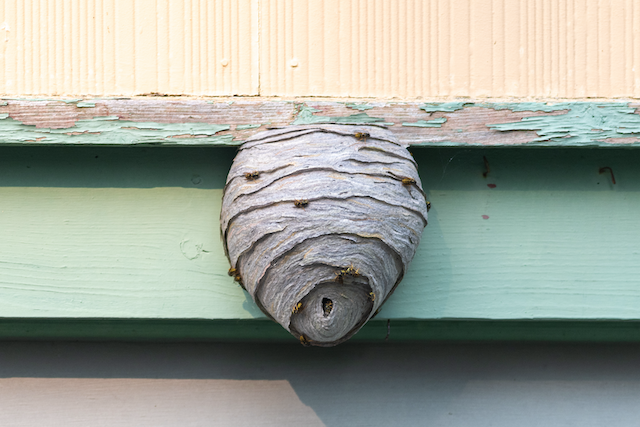As the seasons change and warmer days come around, so do the insects that live in our outdoor areas. Because of the way they naturally like to build nests, wasps often choose our homes to make their colonies. This blog post explains the secrets of wasp nesting habits and gives you tips on how to avoid and deal with these complicated structures.
1. Learn about how wasps build their nests:
Seasonal Dynamics: Know that the busiest times for wasp nesting are in the spring and early summer.
Material Choice: Depending on the species, wasps build their homes out of things like mud or wood fibres.
2. Strategies for each species:
It’s important to identify: Different kinds of wasps have different ways of building nests.
Professional Insight: Talk to professionals in pest control to find out how to identify different species and make custom plans for keeping them away.
3. Preventative Steps for Homes Without Nests:
Regular Checks: Make sure you check your property often for signs of nest-building activity.
Seal any possible entry points: Strengthen windows, doors, and holes to stop birds from laying their eggs there.
**4. Natural Things That Keep Birds from Nesting:
Citrus Power: Use citrus peels in a smart way to naturally keep wasps away.
Essential Oil Defence: Use natural bug sprays with essential oils like peppermint or eucalyptus.
**5. Hiring a professional to get rid of the nest:
Safe Time: Take down the nest at dawn or dusk, when wasps are less busy.
protection Measures: To safely get rid of nests, hire professionals who wear protection gear.
**6. Chemical Alternatives That Are Accurate:
Non-Toxic Trials: Before using chemical solutions, try out non-toxic choices like sprays of soapy water.
Focused Application: When poisons are needed, they should be used precisely to have the least amount of damage to the environment.
7. Working together as a community to make neighbourhoods nest-free:
Educational Goals: Talk to your neighbours about what you know about how wasps build their nests to help them work together.
Joint Efforts at Prevention: Work with the community to take preventative steps together.
**8. Being ready for emergencies in case of stings:
First Aid Knowledge: Teach yourself and your family how to give first aid in case of a wasp sting.
Allergy Awareness: If allergies are a problem, make sure that you can get to the medicines and emergency contacts that you need.
Why preventing nesting is important:
Active Defence: Knowing how wasp nests work and how to stop them from building one is an active way to protect your home and family.
Less chance of getting stung: Taking care of nests early lowers the chance of getting stung by mistake, making the area safer to live in.
Environmental Responsibility: Using non-toxic and environmentally friendly methods shows that you are serious about managing pests in a responsible way.
Making a place without nests:
Understanding how wasps decide where to nest requires knowledge, proactive actions, and working together as a group. By learning about how nesting works, taking steps to keep it from happening, and working together with professionals and your neighbours, you can turn your home into a nest-free haven where you can enjoy warm days without the noise of unwanted guests.
